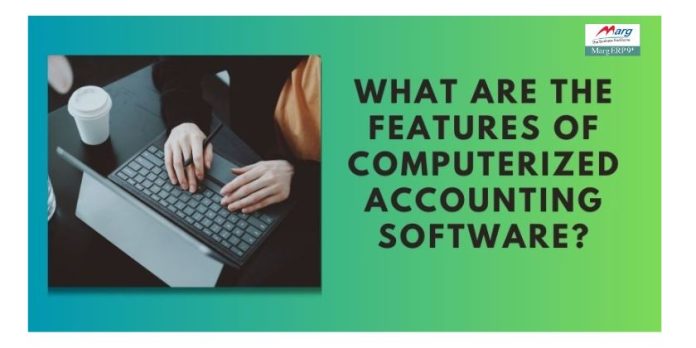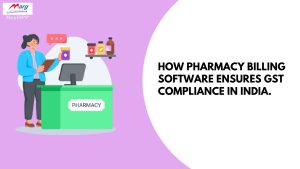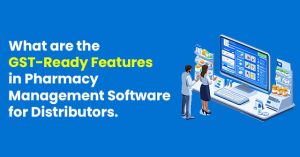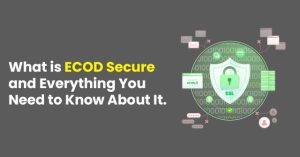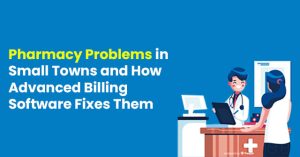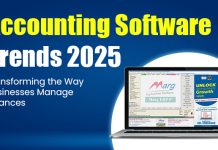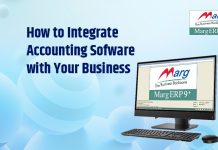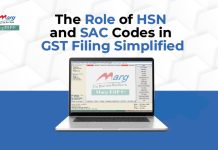In this era, managing finances well is very important. Computerized accounting software helps businesses achieve this by making accounting tasks simpler and more accurate. This system is central to a company’s financial management, as it processes every transaction within the organization. It minimizes the need for manual data entry, removes redundant tasks, and lowers the risk of accounting errors through integrated controls.
What is Computerized Accounting?
Computerized accounting uses software to manage financial transactions and records. Instead of keeping track of finances manually with pen and paper, businesses use computers to simplify the process. This system automates tasks like invoicing, payroll, and bookkeeping, reducing the chances of errors and saving time.
With computerized accounting, data is easily stored, accessed, and analyzed. It allows for the quick generation of financial reports, helping businesses make informed decisions. The software can also integrate with other business tools, providing a seamless workflow. Computerized systems often include data protection features and regular backups, keeping important information safe.
Types of Computerized Accounting Software
There are various types of computerized accounting software available, each catering to different business needs. Understanding these types can help businesses choose the right solution for their specific requirements. Here are the main categories:
- General Accounting Software: This type of software is designed for general use and is suitable for small to medium-sized businesses. It includes features for managing accounts payable and receivable, general ledger, payroll, and basic financial reporting. General accounting software provides a solid foundation for managing everyday financial tasks.
- Enterprise Resource Planning (ERP) Systems: ERP systems are comprehensive software solutions that integrate various business functions, including accounting, inventory management, human resources, and more. They are suitable for larger organizations with complex operations. ERP systems offer a holistic approach to business management, ensuring that all departments work together seamlessly.
- Small Business Accounting Software: Tailored for small businesses, this type of software is user-friendly and affordable. It includes basic accounting features and is often cloud-based, allowing for easy access and collaboration. Small business accounting software is designed to be simple to use, making it ideal for entrepreneurs and small business owners who may not have extensive accounting knowledge.
- Nonprofit Accounting Software: Nonprofit organizations have unique accounting needs, such as fund accounting and grant management. This software is designed to meet those specific requirements, ensuring compliance with regulations and efficient financial management. Nonprofit accounting software helps organizations track donations, grants, and expenditures, ensuring transparency and accountability.
- Industry-Specific Accounting Software: Some industries have specialized accounting needs. For example, construction companies, healthcare providers, and retail businesses may require software with features tailored to their specific operations. Industry-specific accounting software offers customized solutions that address the unique challenges and requirements of different sectors.
Features of Computerized Accounting Software
The features of computerized accounting software vary depending on the type and complexity of the software. However, some common features are present in most accounting software solutions. Here are some of the key features:
- Automated Bookkeeping: The software automates the process of recording financial transactions, ensuring accuracy and consistency. Automated bookkeeping reduces the risk of human error and ensures that all transactions are accurately recorded.
- General Ledger Management: The general ledger is the central repository for all financial transactions. Computerized accounting software maintains the general ledger, allowing for easy tracking and management of accounts. General ledger management is essential for producing accurate financial statements and reports.
- Accounts Payable and Receivable: The software manages accounts payable (money owed by the business) and accounts receivable (money owed to the business). It helps track outstanding invoices, due dates, and payment statuses. Effective management of accounts payable and receivable is crucial for maintaining cash flow and ensuring timely payments.
- Payroll Processing: Many accounting software solutions include payroll processing features, enabling businesses to calculate employee salaries, deductions, and tax withholdings accurately. Payroll processing ensures that employees are paid correctly and on time, and it helps businesses comply with tax regulations.
- Bank Reconciliation: The software can automatically reconcile bank statements with the company’s financial records, ensuring that all transactions are accounted for and discrepancies are resolved. Bank reconciliation is an essential process for verifying the accuracy of financial records and identifying any discrepancies.
- Financial Reporting: Computerized accounting software generates a wide range of financial reports, including balance sheets, income statements, cash flow statements, and tax reports. These reports provide valuable insights into the financial health of the business and help stakeholders make informed decisions.
- Budgeting and Forecasting: The software allows businesses to create budgets and financial forecasts, helping them plan for future expenses and revenue. This feature is crucial for effective financial planning and management, enabling businesses to set financial goals and track their progress.
- Inventory Management: Some accounting software includes inventory management features, helping businesses track stock levels, manage orders, and reduce the risk of overstocking or stockouts. Effective inventory management ensures that businesses have the right products on hand to meet customer demand while minimizing carrying costs.
- Tax Management: The software assists with tax management by calculating tax liabilities, preparing tax returns, and ensuring compliance with tax regulations. This feature reduces the risk of errors and penalties, helping businesses stay compliant with tax laws.
- Multi-Currency Support: For businesses that operate internationally, multi-currency support is essential. The software can handle transactions in different currencies, perform currency conversions, and generate reports in various currencies. Multi-currency support ensures that businesses can accurately track and manage their international financial transactions.
Advantages of Computerized Accounting
Using computerized accounting software has many benefits for businesses. Here are some key advantages:
- Accuracy: Computerized accounting software significantly reduces the chances of errors that are common in manual accounting. Automated calculations ensure that all entries are accurate, and discrepancies can be quickly identified and corrected.
- Time-Saving: Automated processes save a considerable amount of time. Tasks that would take hours to complete manually can be done in minutes with the right software. This efficiency allows accountants to focus on more strategic activities, such as financial analysis and planning.
- Real-Time Data: With computerized accounting software, financial data is updated in real-time. This means that businesses can access up-to-date information whenever needed, facilitating better decision-making. Real-time data helps in quickly responding to financial issues and taking timely actions.
- Enhanced Reporting: The software can generate detailed financial reports with just a few clicks. These reports can be customized to meet specific needs, providing valuable insights into the financial health of the business. Enhanced reporting features allow for better tracking of financial performance and trends over time.
- Data Security: Computerized accounting systems often come with robust security features to protect sensitive financial information. Data encryption, access controls, and regular backups ensure that data is safe from unauthorized access and potential loss. This security is crucial for maintaining the integrity and confidentiality of financial data.
- Scalability: As a business grows, its accounting needs become more complex. Computerized accounting software can easily scale to accommodate increased transaction volumes and additional financial activities without compromising performance. This scalability ensures that the software can grow with the business.
- Integration: Many computerized accounting systems can integrate with other business software, such as inventory management systems, payroll systems, and customer relationship management (CRM) software. This integration streamlines overall business operations and reduces the need for manual data entry across multiple systems.
- Cost Savings: While there is an initial investment in purchasing and implementing computerized accounting software, the long-term cost savings are substantial. Reduced labor costs, fewer errors, and more efficient processes contribute to significant financial benefits. Over time, the efficiency gains and error reductions can lead to substantial savings.
Disadvantages of Computerized Accounting Software
While computerized accounting software has many benefits, there are some downsides to consider:
- High Initial Cost: Buying and setting up the software can be expensive. Small businesses may find this initial cost challenging.
- Technical Problems: The software might have bugs or crashes, which can disrupt accounting work. Regular updates and fixes are needed to keep it running smoothly.
- Complexity: Some software can be complicated to use, especially for those not familiar with accounting. Training might be necessary to learn how to use it effectively.
- Data Security Risks: Even though the software has security features, there is always a risk of data breaches or cyber-attacks. Good security practices are needed to protect financial information.
- Dependence on Technology: If the technology fails, like during a power outage or system crash, access to financial data and operations might be affected.
- Ongoing Costs: Besides the initial purchase, there are ongoing costs for updates, technical support, and possible subscription fees.
- Learning Curve: Switching from manual to computerized accounting can be difficult. Staff may need time to get used to the new system.
- Data Loss: There’s a risk of losing data if something goes wrong, even with backups. Regular backups and recovery plans are important.
- Customization Limits: Some software might not be customizable enough to meet all specific business needs. Businesses may face limitations if they need special features.
- Integration Issues: Connecting the accounting software with other business systems can sometimes be tricky or require extra help, leading to possible compatibility problems.
Conclusion
Computerized accounting software has changed the way businesses handle their financial tasks. With features like automation, real-time processing, and data accuracy, this software offers many benefits over traditional manual accounting methods. Whether you are a small business owner or part of a large organization, there is a type of computerized accounting software that can meet your specific needs. By investing in the right software, you can improve efficiency, enhance accuracy, and make informed financial decisions that help your business grow.
Read More:-
- How Pharmacy Billing Software Ensures GST Compliance in India. GST compliance is mandatory as per Section 149 of the GST Act, 2017. Union Government is legally authorised to evaluate and rate every taxpayer (chemist and pharma companies) based on their performance in complying with mandatory GST rules and regulations. The new updates and tax rates announced in GST 2.0 (September 2025) also comes under this. … Read more: How Pharmacy Billing Software Ensures GST Compliance in India.
- What are the GST-Ready Features in Pharmacy Management Software for Distributors. According to Section 24 of the CGST Act, GST registration, returns, and filing are compulsory for pharma distributors, pharma retail shops, and other businesses. It defines turnover limits, rules regarding key provisions, processes, and more. GST compliance is necessary to run a business smoothly in India as per regulations… Read more: What are the GST-Ready Features in Pharmacy Management Software for Distributors.
- What is ECOD Secure and Everything You Need to Know About It. In today’s fast-evolving pharmaceutical landscape, efficient data management and digital connectivity are no longer luxuries, they are essentials for growth. From pharmacies to distributors and manufacturers, accurate insights into sales, stock and purchasing trends are the backbone of smart decisions. This is where robust pharmacy software and inventory management software solutions… Read more: What is ECOD Secure and Everything You Need to Know About It.
- Pharmacy Problems in Small Towns and How Advanced Billing Software Fixes Them Running a pharmacy in a small town or rural area in India is not easy. Patients depend on the chemist for everything from basic fever tablets to life-saving medicines often because there is no nearby clinic or doctor. At the same time,… Read more: Pharmacy Problems in Small Towns and How Advanced Billing Software Fixes Them
Frequently Asked Question
What is computerized accounting software?
Computerized accounting software is a digital tool that helps businesses manage financial tasks like recording transactions, generating reports, and maintaining ledgers efficiently and accurately.
How does computerized accounting software improve accuracy?
The software automates calculations and data entry, reducing human errors. It ensures consistent and precise financial records, making it easier to identify and correct discrepancies quickly.
What are the advantages of using computerized accounting?
Advantages include improved accuracy, time savings, real-time data access, enhanced reporting, better data security, scalability, integration with other systems, and long-term cost savings.
What types of computerized accounting software are available?
Types include general accounting software, ERP systems, small business accounting software, nonprofit accounting software, and industry-specific software tailored to unique business needs.
Can computerized accounting software handle payroll processing?
Yes, many accounting software solutions include payroll features, allowing accurate calculation of employee salaries, deductions, and taxes, ensuring timely and correct payments.
How does computerized accounting software save time?
Automated processes handle repetitive tasks quickly, such as data entry and report generation. This frees up time for accountants to focus on analysis and strategic planning.
What features should I look for in accounting software?
Key features include automated bookkeeping, general ledger management, accounts payable and receivable, payroll processing, bank reconciliation, financial reporting, budgeting, and tax management.
Is computerized accounting software secure?
Yes, these systems have strong security features like data encryption, access controls, and regular backups to protect sensitive financial information from unauthorized access.
How does computerized accounting software help with financial reporting?
The software generates detailed financial reports, including balance sheets, income statements, and cash flow statements, providing valuable insights into the business’s financial health.
Can small businesses benefit from computerized accounting?
Absolutely. Small business accounting software is user-friendly and affordable, offering essential features to manage finances efficiently, even for those without extensive accounting knowledge.
What is the role of integration in accounting software?
Integration allows accounting software to connect with other business systems, like inventory and payroll, ensuring seamless data flow and reducing manual data entry errors.
How does computerized accounting software support scalability?
As a business grows, the software can handle increased transaction volumes and additional financial activities, ensuring continued efficiency without compromising performance.
Can accounting software manage multi-currency transactions?
Yes, many accounting systems support multi-currency transactions, performing currency conversions and generating reports in various currencies, essential for international operations.
What is the importance of an audit trail in accounting software?
An audit trail records all changes made to financial data, ensuring accountability and compliance with regulations. It helps track and verify transactions and modifications.

